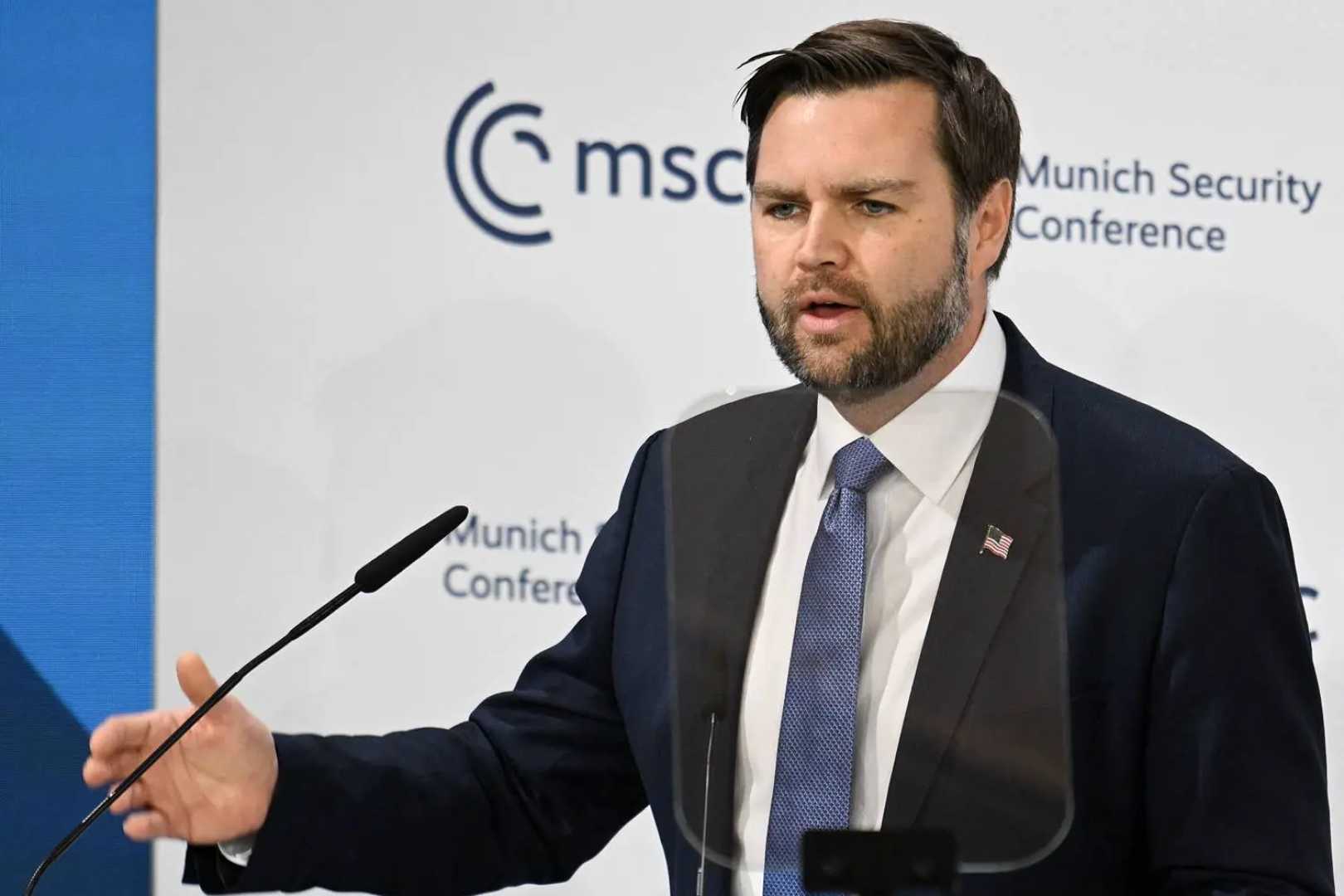Politics
Vice President Vance Sparks Controversy at Munich Security Conference

MUNICH, Germany — U.S. Vice President JD Vance criticized European leaders at the Munich Security Conference on Friday, accusing them of stifling free speech and mishandling immigration policies. His remarks, delivered near the end of the first day of this major international security gathering, quickly drew ire from Germany’s Defense Minister Boris Pistorius, overshadowing critical discussions about the ongoing war in Ukraine.
Vance’s address, which notably downplayed the significance of Russia in a week marked by U.S. President Donald Trump‘s phone call with Russian President Vladimir Putin, focused instead on what he described as Europe’s retreat from its fundamental values. “The greatest threat to Europe is not Russia or China, but the erosion of our shared values,” Vance stated, highlighting frustration over unregulated immigration as well.
Germany’s Defense Minister Pistorius was quick to respond, labeling Vance’s comments as “unacceptable” and suggesting they undermine democratic values not only in Germany but throughout Europe. His rebuttal highlighted the tension between the Biden administration and European leaders over various security issues, including NATO and the approach to Ukraine.
The reaction to Vance’s speech was palpable; many attendees reportedly listened in stunned silence, with only muted applause following his remarks. The uncomfortable atmosphere reflected the growing chasm between Trump’s administration and long-time U.S. allies in Europe.
Additionally, Vance’s meeting with Alice Weidel, leader of the far-right Alternative for Germany (AfD) party, raised eyebrows. That party is under scrutiny for its right-wing extremist affiliations and is polling at around 20% as Germany approaches its federal elections. The meeting is likely to attract criticism given Germany’s general policy of sidelining the far-right from mainstream political discourse.
The backdrop of Vance’s speech included concern among European leaders regarding Trump’s phone call with Putin, which many perceive as an effort to engage Russia without adequately addressing the implications for Ukraine and European security. “Trump’s discussions could isolate Ukraine further and signal a willingness to barter away territory,” commented a European diplomatic source.
Before the conference, Vance indicated in an interview with the Wall Street Journal that the U.S. could leverage both military and economic tools against Russia. However, Vance’s spokesperson later clarified that there was no intent to threaten Russia, contradicting narratives about the implications of his speech.
Ukrainian President Volodymyr Zelensky attended the conference, emphasizing his desire for “real security guarantees” before engaging in talks with Putin. “We will only discuss terms once we have a unified approach among our allies,” Zelensky told reporters.
German Foreign Minister Annalena Baerbock warned against rushing toward a peace agreement that could undermine Ukraine’s autonomy. “A forced peace over the heads of Ukrainians will not yield lasting security,” she said, stressing the necessity for dialogue that respects Ukraine’s sovereignty.
Following the day’s events, NATO Secretary General Mark Rutte supported Vance’s assertion that Europe must assume greater responsibility for its defense. “We cannot rely solely on others for our security and must increase our spending accordingly,” Rutte said, echoing sentiments shared by multiple European officials throughout the conference.
While Vance defended Trump’s position that Europe should bolster its own defenses, the lack of a united front among European nations could hinder a coherent strategy against Russian aggression. As discussions continued, concerns loomed that internal divisions could present opportunities for Moscow to exploit weakening alliances.
As the Munich Security Conference convenes through the weekend, the outcomes of these discussions will be critical in shaping the future of transatlantic relations in the context of a rapidly evolving geopolitical landscape.












